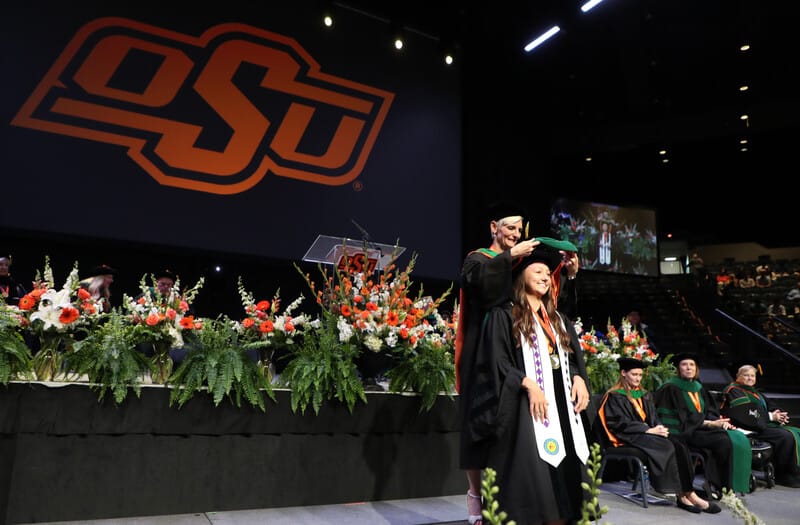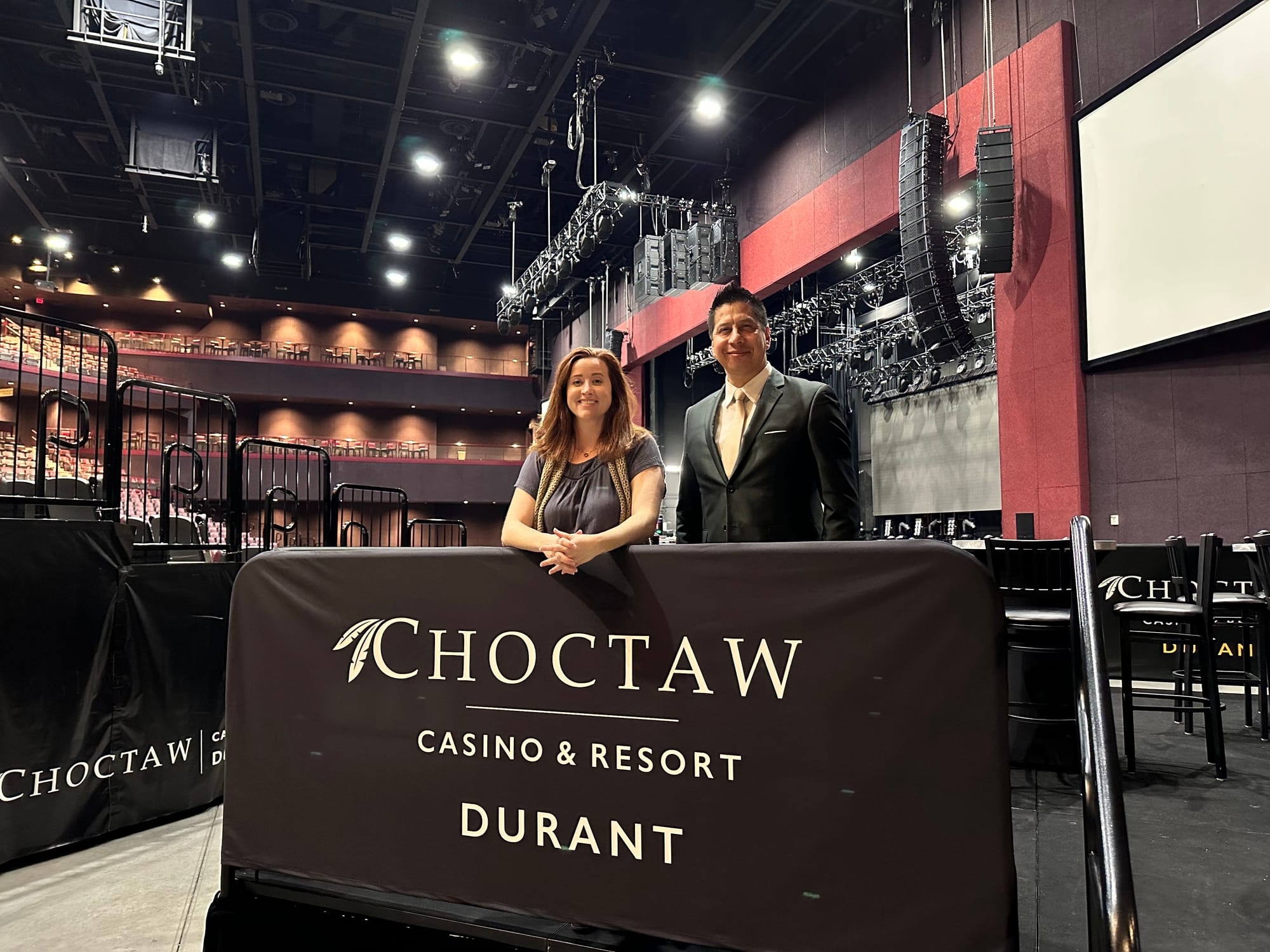

U.S. Department of Justice Supports Mvskoke Nation in Tulsa suit

DOJ files motion to intervene in lawsuit over post Hooper arrest
by Jerrad Moore
TVLSE, Oklv. – On November 15, 2023, the Muscogee (Creek) Nation filed suit against the city of Tulsa for continuing to assert criminal jurisdiction over Native Americans on the Mvskoke reservation. On May 13 the United States filed a motion to intervene in the case, supporting the MCN.
According to the filing,
“This case involves Tulsa’s continued assertion of criminal jurisdiction, without congressional authorization, over Indians for conduct occurring within the boundaries of the Muscogee (Creek) Reservation. Tulsa’s assertion of such jurisdiction violates fundamental principles of federal Indian law deeply rooted in the United States Constitution. The longstanding rule – recently reiterated in McGirt v. Oklahoma, is that the states and their political subdivisions lack criminal jurisdiction over Indians in Indian country absent congressional authorization. Because Congress has not authorized Oklahoma or Tulsa to exercise such jurisdiction, that rule applies with full force here.”
The motion seeks a declaration that Tulsa lacks criminal jurisdiction over Native Americans within the Mvskoke Reservation and Tulsa’s assertion of jurisdiction violates federal law. In addition, the filing requests that Tulsa be permanently enjoined from asserting criminal jurisdiction and prosecuting Native Americans on the reservation absent authorization from congress.
Mvskoke Media will have ongoing coverage of this developing story.

Choctaw Nation gets grant for energy projects

By Anna Pope
The Choctaw Nation is receiving $5 million from the U.S. Department of Energy to install a battery storage system and make their tribal facilities more energy efficient.
Like many parts of Oklahoma, intense or extreme weather knocks the electricity out at Choctaw Nation’s Poteau campus. Since 2018 the campus loses power three times annually on average and has seen as many as five outages in a year, according to the department.
The project Greencare: Empowering Resilience in Poteau, aims to install battery storage systems to create a microgrid and carry out energy-efficient upgrades in seven buildings.
During outages, the microgrid will provide backup power for a health clinic, child development center and food distribution center. In addition to supplying electricity, the project will reduce reliance on greenhouse gas emissions, according to the announcement.
“We are tremendously excited with the opportunity to provide consistent power for our tribal members in the Poteau area, especially with services such as healthcare,” Choctaw Nation Chief Gary Batton said in a press release published by the McAlester News-Capital newspaper.
Energy efficiency equipment upgrades can include everything from new or updated HVAC systems and water heaters to replacing light fixtures. The improvements are estimated to save $140,000 in electricity costs annually and the overall project is expected to provide local employment opportunities.
The funding is from the Energy Improvements in Rural or Remote Areas program, which is designed to improve energy systems in communities with 10,000 people or less. The Office of Clean Energy Demonstrations manages the program.
The energy agency awarded $78 million in grants for 19 projects in 12 states and 13 Tribal nations. According to the announcement, the energy projects are in or near historically underserved communities disproportionately impacted by pollution.
Historic inaugural class graduates from OSU College of Osteopathic Medicine at the Cherokee Nation

TULSA — Oklahoma State University College of Osteopathic Medicine at the Cherokee Nation celebrated a monumental achievement on May 16 as its inaugural class of 46 medical students graduated from the country’s first tribally affiliated medical school.
The commencement ceremony, which graduated students from OSU College of Osteopathic Medicine and OSU-COM at the Cherokee Nation, was held at the Mabee Center in Tulsa.
“Tonight, we celebrate the realization of a dream, one that started over a decade ago when I served as president of OSU Center for Health Sciences,” said Dr. Kayse Shrum, president of OSU, during the ceremony. “We wanted to expand our efforts to better the health outcomes of rural Oklahomans, while also growing the medical school.”
Approximately 20% of the inaugural class are Native American. It’s a substantial number compared to the less than 1% of Native American students enrolled in medical schools nationally. About 35% of the students from the inaugural class from OSU-COM at the Cherokee Nation matched with a rural or tribal residency program.
Cherokee Nation Principal Chief Chuck Hoskin Jr., said as the tribe celebrates this historic milestone they also honor the resiliency of their ancestors.
“Today their legacy lives on as this exceptional group of future doctors prepares to break barriers and forge new paths in health care,” Hoskin said. “Their dedication not only addresses the critical shortage of rural doctors but also increases the representation of Native and Cherokee physicians within our health system and other tribal health systems in this state, ensuring top-notch care rooted in culture for generations to come.”
With health outcomes in Oklahoma ranking near the bottom nationwide, training physicians who will someday care for rural and underserved Oklahomans is a key mission of OSU Center for Health Sciences.
“These graduates, who have completed their training in the heart of the Cherokee Nation, embody the values of service, compassion and excellence that define both the Cherokee Nation and Oklahoma State University,” said OSU-CHS President Johnny Stephens. “Their journey has been one of dedication, perseverance, and cultural understanding. As they embark on their careers, they will carry with them the unique perspective and knowledge gained from this groundbreaking partnership.”
In August 2020, the inaugural class didn’t just make history by being the first students attending a tribally affiliated medical school, they also started classes in the middle of a global pandemic.
“The first semester of medical school is difficult. Compound the stress of moving, forming new relationships, learning a high volume of complex information during a global pandemic, and you begin to understand the challenges faced by the class of 2024,” said Dr. Natasha Bray, OSU-COM at the Cherokee Nation dean. “The class of 2024 demonstrated resilience and leadership. They developed deep friendships and a culture of support both in the learning environment and the community. They developed a deep, and I hope enduring, appreciation of the role of physician in service.”
Ashton Glover-Gatewood, an enrolled member of the Choctaw Nation and descendent of the Chickasaw and Cherokee Nations of Oklahoma, was working as a nurse and health care administrator at the Oklahoma City Indian Clinic when she applied to be part of the first class of medical students on the new Tahlequah campus.
“We’ve been through a lot as a class. I think we had a unique set of challenges, but we really grew together; we uplifted each other, and we helped each other,” Gatewood said. “I also feel a responsibility to represent my tribe. I hope that my story can inspire others to continue pursuing their dreams, especially Native students and women who may not have many mentors in their communities.”
The Gathering returning to Choctaw Nation in 2024

(DURANT, Okla.) The Gathering Business Summit is an annual conference that brings Native businesses, Tribal businesses and allied businesses together with the goal of advancing Indian Country commerce.
Held by the American Indian Chamber of Commerce of Oklahoma (AICCO), the Gathering is set to return to Choctaw Nation this July 10-12. The return south to the Choctaw Reservation is five years in the making, as the annual business summit was held there in 2018 and 2019.
“It is the best attended Native business conference in the state, emphasizing the positive impact we have on the community,” AICCO State President Bailey Walker said. “This collaboration with the Choctaw Nation and Durant on our crown jewel is a massive opportunity for networking, cultural exchange, business growth, and community involvement, reflecting a dedication to diversity and inclusive business practices.”
Billy Hamilton, Director of the Choctaw Small Business Development program, said their program is one of many looking forward to its return.
“This brings a lot of opportunities for our local Chahtapreneurs to network their businesses and to make connections with other Native businesses throughout the state,” Hamilton said.
The Choctaw Nation currently has 1,735 Choctaw tribal member-owned businesses, referred to as ‘Chahtapreneurs,’ within reservation boundaries. Hamilton said these businesses have created nearly 5,000 jobs for the community.
While a goal of the conference is to provide space for attendees to network and gain industry insight, this year will also be an opportunity for AICCO to boost its bond with the Durant Area Chamber of Commerce, a relationship that has existed for many years.
Janet Reed, Executive Director for the Durant Area Chamber of Commerce, said she has been involved with that relationship since the beginning.
“My experience was very exciting as I always see the development of an organization that will help our city as a very positive move in any community,” Reed said. “Collaborating with AICCO for an event like The Gathering presents exciting opportunities for networking, cultural exchange, business development, and community engagement, all while demonstrating a commitment to diversity and inclusion in business practices.”
Reed said events like The Gathering in Durant offers the opportunity for the Chamber of Commerce to further elevate Native Businesses.
“The Durant Chamber of Commerce serves as a bridge between Native businesses and the broader business community, fostering collaboration, advocacy, and economic empowerment,” Reed said. “By actively supporting and promoting Native entrepreneurship, the Chamber contributes to a more inclusive and prosperous business environment for all.”
Reed said she hopes conference-goers will also visit the city’s downtown area and consider opportunities to collaborate in Durant during the conference.
“Experiencing what Durant and its surrounding area have to offer provides businesses with a broader perspective, new opportunities for growth and collaboration, and a deeper appreciation for the local community and culture,” said Reed. “This can ultimately contribute to strategic decision-making and long-term business success.”
“It is nice to have conferences like the Gathering to be held locally as it provides easier access to attend the event without having to travel multiple days,” Hamilton said. “This is a barrier to some of our local businesses, so it is great when they are hosted close to home.”
“We are thankful for yet another opportunity to highlight our Native business community with what is promising to be our largest summit yet this July,” Walker said.
Those interested in registering for the conference or becoming a sponsor, can do so athttps://aiccok.org/events/business-summit/



